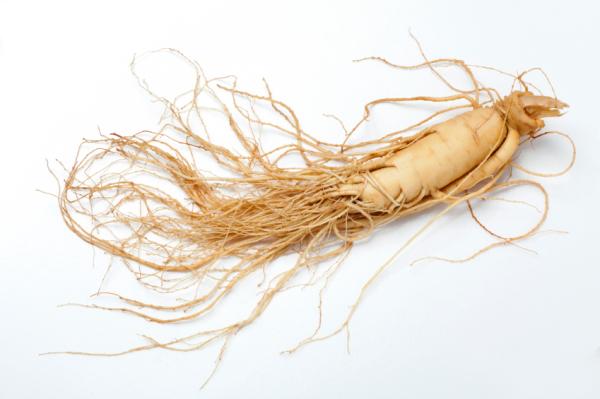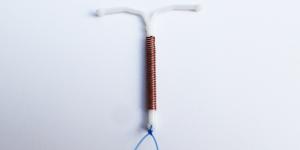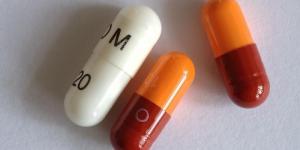What Is Ginseng Good for


There's a lot of talk about ginseng, one of the most well-known medicinal plants in the World. Its use goes back for centuries as many cultures have taken advantage of its health benefits, such as its energizing, antioxidant and vitamin properties.
Now, we can find it in a pill or supplement but, what is ginseng good for? oneHOWTO would like to explain the benefits of this great plant.
Steps to follow:
Ginseng: what it is and what is it used for
Ginseng (also called Panax ginseng) is a herbaceous plant native to Machuria and Korea. Its flowers are small and give a scarlet fruit with exactly five seeds. The root is the part of the plant that is used to extract its medicinal benefits, which are mainly to boost the user's energy.
Panax ginseng is derived from the Greek panákeia ("panacea") meaning "remedy for all diseases". As for the term "ginseng", this comes from the Chinese jin (man) and chen (plant), that is to say "man plant ". This is due to the peculiar shape of ginseng and its resemblance to the human figure.
There are several varieties of ginseng, but the main ones are American ginseng, red or Korean ginseng and Siberian ginseng.

Nutritional value of ginseng
Ginseng stands out for being rich in ginsenosides, a natural chemical compound whose nature is steroid, glycosidic and triterpenoid saponin. The ginsenosides class may vary depending on the type of ginseng.
On the other hand, ginseng is rich in vitamin B1, B2 and D, in amino acids, in essential oils and, of course, in estrogens, which can be a drawback in some people. In addition to the described above, the nutritional value of ginseng contains:
- Ginenosides
- Vitamins B and D
- Anaxanos
- Proteins
- Amino acids
- Iron
- Magnesium
- Copper
- Aluminum
- Panoxín
- Panacén
- Panaxadiol
- Ginsenin
- Tannins
- Saponins
- Oleanolic acid
Ginseng is a powerful ally for many ailments. It is, for example, a great ally for the students while studying for their exams, due to its strong contribution of energy. The greatest properties and benefits of ginseng[1] are:
- It regulates high cholesterol: Ginseng is good for for people who suffer from high cholesterol, as it can help balance its levels, benefiting the heart too. If taken with an adequate diet and physical exercise it can improve this condition for patients.
- Energy booster: One of the most popular properties of ginseng is linked to energy boosting. Its a big help to get over fatigue and tiredness, both physical and mentally and it's also very useful when we're working on things that require work and concentration, as it also boosts cerebral irrigation.
- Antioxidant properties: Ginseng is a powerful antioxidant that can help us fight free radicals, responsible for cell aging and formation of diseases such as cancer. At the same time, it can help strengthen the immune system, boosting our natural defenses and helping prevent diseases.
- Helps our lungs and liver: Apart from all of this, it also favors our lungs and liver, benefiting the hepatic function, as well as helping us get rid of toxins in our body, which is useful to cleanse the liver.
- Benefits our heart: Ginseng is also useful for our heart, helping prevent heart diseases and is also very useful in cases of atherosclerosis. It's an excellent option to boost blood flow, improving our quality of life.
- Regulates blood sugar levels: It also helps people with diabetes as it balances the levels of sugar in blood. However, if you have this disease you should never take Ginseng without consulting a doctor, as it could interfere with the effects of your meditation and reduce the levels of glucose more than required.
- Boosts your mood: Those who suffer from stress, anxiety or depression can also find great help ginseng, which has a positive effect on your mood.
- Helps fight anemia: It's also a medicinal plant that helps fight anemia, regulating the levels of iron in blood.

How to take ginseng
There are two ways to take ginseng: in the form of tea or in supplements (whether in capsules, drops, tablets ...). Keep reading to know how to take it in each case.
How to prepare ginseng tea
Ginseng tea can be purchased in pharmacies or prepared by yourself. If you want to do it on your own, we recommend that you follow the following steps:
- Get a ginseng tuber, wash it well and cut several thin slices.
- Heat a bowl of water until it begins to boil.
- Add the ginseng slices and wait 15 minutes.
- When the tea begins to cool, use a strainer to get rid of hard parts that may have fallen into the water.
How to take ginseng vitamin supplements
Ginseng supplements usually come prepared with the right doses. However, depending on the brand and type of ginseng, it is advisable to read the label to know how often it is advisable to take the supplement, although it is usually 1 to 3 capsules daily.

Where to buy ginseng
Ginseng can be obtained in different presentations, although at oneHOWTO we recommend to buy ecological ginseng. You can also find it directly in the form of tea or supplements in pharmacies or herbal shops.
It is important to ask a specialist for how long you can take it and understand that nothing in excess is good. In fact, this medicinal plant taken excessively can produce insomnia, anxiety and nervousness, due to its energizing properties.
Contraindications of ginseng
Though the properties of ginseng can benefit some patients, it's important to take into account that there are also several side effects. This is why taking ginseng is contraindicated for the following:
- Patients suffering from insomnia.
- Pregnant or breastfeeding women.
- Babies and children.
- Patients who suffer from migraine and headaches.
- People with lesions such as artery hypertension, varicose veins, heart lesions, hyperthyroidism and hypothyroidism, as it can aggravate these conditions. Diabetic patients must consult a specialist before taking ginseng.
- Patients with autoimmune diseases such as lupus or rheumatoid arthritis.
- It should not be ingested by people who have had an organ transplant, as it interferes with the immune system and can affect the medication.
This article is merely informative, oneHOWTO does not have the authority to prescribe any medical treatments or create a diagnosis. We invite you to visit your doctor if you have any type of condition or pain.
If you want to read similar articles to What Is Ginseng Good for, we recommend you visit our Drugs & supplements category.







